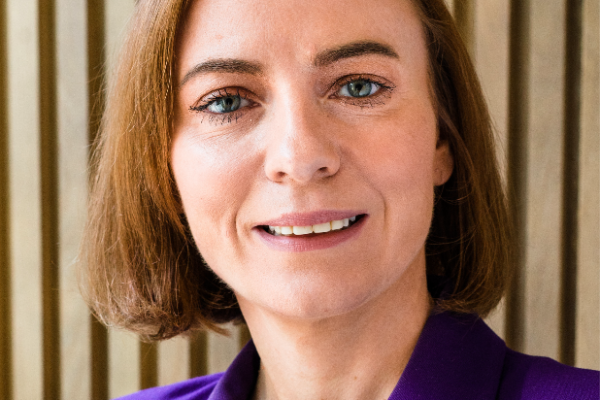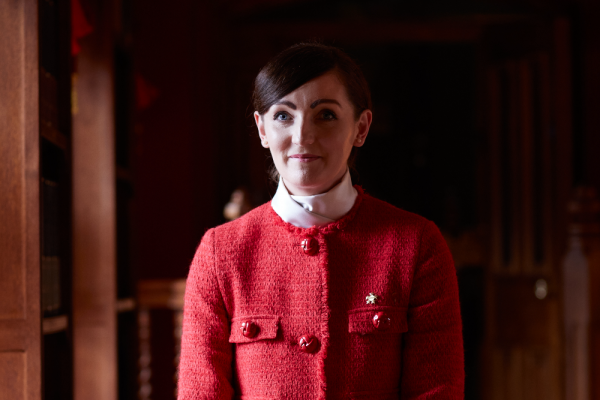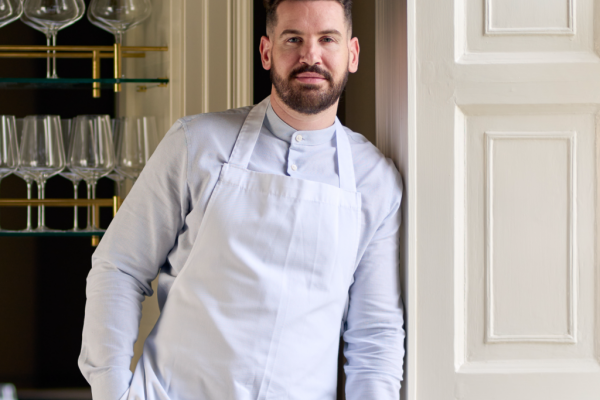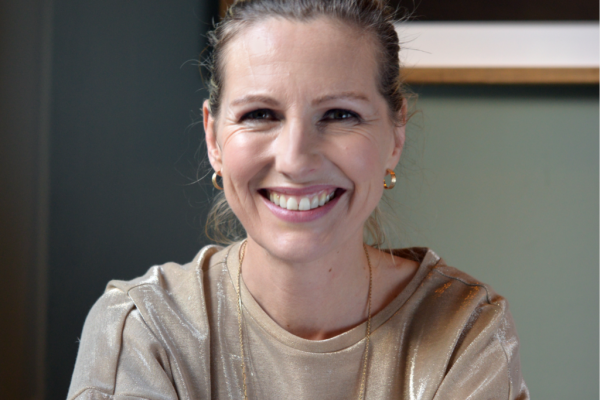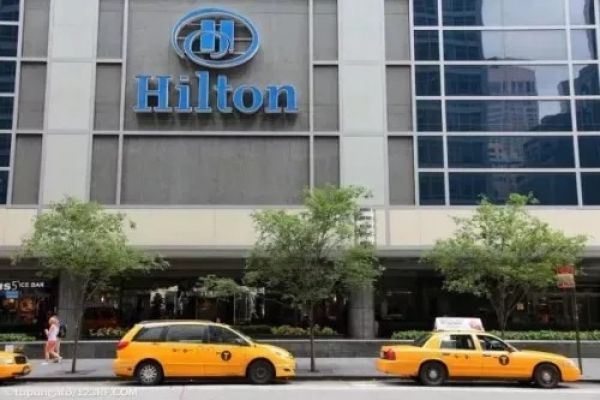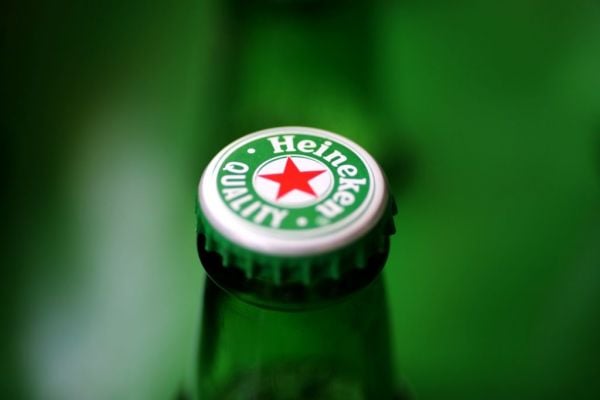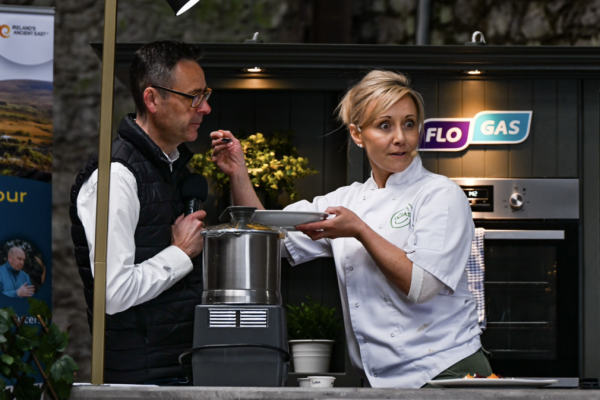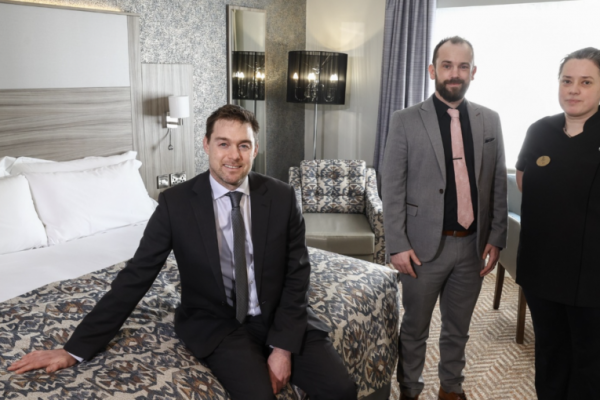Hospitality Ireland catches up with Adrian Cummins — recently elected to the executive committee of the representative body of all of the hotels, restaurants and cafés in Europe, an umbrella group called HOTREC — to find out what his plans are in Europe.
The Restaurants Association of Ireland has been one of the more vocal lobby groups for our industry in recent times. In a political and economical environment such as this, the need for a clear stance, solid footing and concise, articulate and forceful arguments is more important than ever. We are seeing every aspect of our hospitality industry come under attack. Rents, rates, falling visitors, costlier supplies and a stagnant workforce have created an incredibly difficult environment for our businesses to operate. So, when the RAI’s chief exec, Adrian Cummins, ascended to the executive committee of HOTREC (the European tourism representative body), it would be understandable for our optimism levels to rise.
The organisation works to promote and defend the interests of the hospitality industry towards the EU institutions and aims to enhance the cooperation between the national hospitality associations.
“I want to make sure that the tourism agenda is to the forefront within the EU,” begins Adrian. “What I want to do is make sure that legislation coming down the track from Europe isn’t prohibitive from doing business in Ireland.” Much criticism has fallen the way of Irish legislators in the last 20 years, as EU directives have lead to a raft of new rolls of red tape to overcome. Couple that with the problem with rates and upward only rents, it’s clear that the industry could only survive — while being squeezed — for so long.It’s a big ask, though, to shape the political sway of our financiers in Brussels. But, as a direct lobby group, Adrian is fully aware of the difficulties and, more importantly, the opportunities which will arise from this position. “It’s a huge step up,” he admits. “A huge achievement to get elected to a committee that’s a lobby group, based in Brussels. It deals with the European Commission on a day to day basis. It’s the first time that the RAI have been elected to such a high-esteemed board.”
Adrian’s new position is for the next two years, and is completely voluntary. The volountary aspect is something which sounds quite beneficial for us back in Ireland because, as every member of the board is clearly a stakeholder in the industry, a somewhat unified approach to work is the basis behind the group’s effectiveness. At HOTREC, Adrian will be in communication with similarly minded people in Spain, Greece and France, countries which have, what he terms, ‘pro-tourism economies.’ “Those countries have a pro-tourism agenda, because they can see the benefits from it. I want to work with my colleagues in Spain, Cyprus and that —tourism is the number one driver in some of their economies and I want to work on a joint approach as to how we direct change at an EU level.” So what change are we talking here, taxes? Border controls? Major events? Well, think bigger. Adrian wants to plan his model on that of the agricultural lobby, perhaps the most successful lobby to have influences EU policy since its inception. However, agricultural work can be considered that of a state’s national security, producing foodstuffs gains attention because of the tangibly by-product of its work. Perhaps it is down to the effectiveness of its lobby group, perhaps not, but either way, agricultural work, produce and labour is almost a protected species in Europe. What can tourism really do to compete? Well, the Irish presidency of the EU starts in January, and Adrian sees that as a huge opportunity. “We haven’t done enough in the past, like how the agricultural sector has effectively lobbied Europe and secured huge funding. We need to look at that. I come from a political lobbying background and its important that we are doing the right thing. Tourism isn’t really on the agenda over there at the moment, it’s a subsection of, well, enterprise, really. There is no Commissioner, for example, for tourism. I want Ireland to be able to access funding. I want to look at the different funding mechanisms in Europe and see can we access some of that funding in Ireland. There are huge opportunities.” However, there is a more appealing and practical aspect to this current position. “It’s also very good from an intelligence and resource element,” claims Adrian. In his dealings in Brussels, Adrian will be in direct communication with countries who could prove key to legislation here in Ireland. For example, the tax on soft drinks which earned ridiculous levels of newspaper ink, cyber ink and radio… ink, has already been dropped in Denmark. Colleagues over there can give direct feedback on that to help Adrian’s lobbying back in Ireland. “Our minister for health wants to bring in calories for menus. All my colleagues in Europe are asking ‘What are you at? This could be catastrophic for our industry’.” Feedback like this is a huge boon to our industry, because, legislation which affects tourism can be quite subtle and appear minute.
For example, last year when food labelling in our industry was broached by the Commision, HOTREC was quick to respond. Anna Torres, CEO, said: “ Compliance […] would impose heavy burdens and costs on the sector and it would simply be unworkable for the vast majority of hospitality establishments. Staying in business counld only be possible by reducing the menu offer and by using ready-made and pre-labelled food instead of fresh products!” HOTREC is essentially a collection of non-governmental bodies, rather than state agencies. When you are an NGO, you think and work differently to state agencies. They, by their nature, get bogged down by processes, claims Adrian. “Where we work with our colleagues in Europe, we work faster, cut out the red tape where we can and just get the job done. The intent is there, too. The personal onus is on delivery for your members. I’ve set out that I want to work to get the European funded programmes here directly.”
That is possible by working with transnational programmes – three countries get together and apply for funding in that aspect. Given the capital funding received by other industries in Europe, it’s to be expected that Adrian seeks such success. Projects in civil infrastructure, incentives for farmers, funding for scientific experimentation and swathes of industries receiving educational funding shows at first glance the ease at which EU movement can affect an industry of individuals, when represented to the full in Brussels.But, from what he has experienced, what laws from other countries could be implemented over here? At our recent National Hospitality Conference, a Scandinavian country was noted to have made Michelin star restaurants tax free, while also weighting the tax you pay on your suppliers favourably for those who source locally. Would something like this, at such a minor cost to the state, be an example of what we can achieve? “The Irish government is moving away from tax allowances in Ireland, because of the property bubble. But, there’s starting to be a huge need to look at getting more chefs employed in Ireland. I will look for funding to get something like that going.”
Late last month, Adrian delivered RAI’s 10-point plan, outlining the steps that need to be taken if the restaurant industry is to continue to survive and recover. “We want to be able to market Ireland as a centre of food excellence, a true culinary experience with world-class chefs leading the way. Instead, we are finding ourselves in a position where we have to recruit chefs from abroad when there are thousands of Irish people on the live register.”
President of the Association, Brian Fallon, points to the feedback from the RAI members at the recent nationwide Restaurant Association Branch Roadshows; “Feedback coming from our members is that courses need to be modernised and more practically-based in the kitchen. We have devised a course that is ready to run, train people in kitchens and classrooms and even guarantees employment.
“Restaurateurs are entrepreneurs; the government needs to be reminded of that. When a restaurant opens or expands, they will create several jobs and generate business for the area and their suppliers. But a restaurant relies on its chefs for survival.”
The Lisbon Treaty, which entered into force on 1 December 2009, strengthens the EU competence in the area of tourism, with the entire industry now one of the policy areas for which “the Union shall have competence to carry out actions to support, coordinate or supplement the actions of the Member States”.
In view of this new competence, the European Commission adopted on 30 June 2010 a Communication entitled "Europe, the world´s No 1 tourist destination - a new political framework for tourism in Europe". The Commission text defines the policy framework for the development of European tourism, but still it takes the sway of stakeholders to fully orchestrate movement and, when needed, change.
“The most important thing is that we need to be more pro-job creation,” says Adrian. “Our agencies aren’t working in a uniformed or cohesive fashion. For example, the Department of Education doesn’t talk to the Department of Social Protection, the Department of Social Protection doesn’t talk to the Department of Enterprise, Trade and Employment […] We need to ensure that any policy being created is pro-jobs, but also pro-employer. This industry employs a lot of people. The government needs to create the environment. But there’s very little movement. For example, our proposal back in May. We were going to create 220 chef positions. We were going to train them for 45 per cent cheaper than colleges, and still nobody is talking to us. Not one agency approached us. You need a minimum of 36 weeks to get a chef over the line. So June next year, if we were to start immediately, would be the soonest we could have them ready.”

